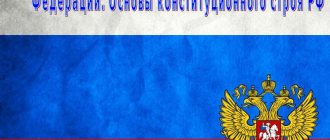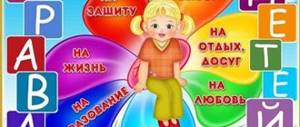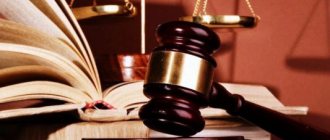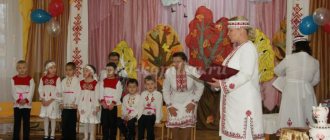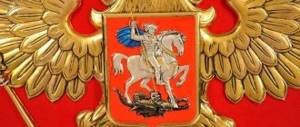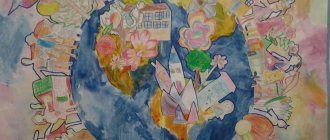School presentation
School without borders. Boring holiday weeks are a thing of the past. Russian Harvard has its own tourist center, so there are no “customs” borders for its students. They travel all over the world. School students participate in exchange programs with educational institutions in European countries. The academic program includes mandatory cultural and educational trips around Europe, in-depth study of the English language and a course in business fundamentals.
Pleasure for health.
Russian Harvard is a school where a child develops comprehensively. From an early age, children broaden their horizons, get acquainted with world cultures, acquire everyday skills and learn to interact with the world around them. Young gardeners take care of plants, and little artists, poets and musicians create their first masterpieces. Teachers help children discover new talents in themselves, teach them to see and create beauty themselves.
Geography and biology lessons often take place not within the usual four walls, but in parks or museums. The studied material is reinforced by showing a film or an entire themed holiday. Much attention is paid to the development of sports skills. But even in physical education lessons, the main thing is not standards, but an individual approach to students. Everyone is free to do what is most important and interesting to them. The choice is huge: from alpine skiing, rock climbing and swimming to yoga and hip-hop. In addition to traditional sports, students ride bicycles, skate and play their favorite games. Such sport is always fun, and pleasure is good for your health!
Modern technologies as the secret of success.
Classes are equipped with the latest technology. Children study at orthopedic desks. SmartBoard interactive whiteboards and presentation equipment are used in teaching.
Photo in Vadim Olegovich's class.
The school has modern computers and wireless Internet. And this is also part of learning. Since even in the classroom there are presentations created by children. School students conduct scientific research, receive grants, learn to think and show their best side.
The school maintains close contact with parents. Each of them, by prior agreement, can attend any lesson or activity and find out about the child’s progress. There is a correctional department for hyperactive children and children with dyslexia. Experienced psychologists are always ready to help students or advise their parents. Studying at Russian Harvard is like a grand adventure with friends lasting several years. The result of such training, as they say at American Harvard, “whom you hug in the first year, then you sit with in the Senate.”
Every parent may need to leave their child at school overnight. Having notified the curator and school administrator in advance about the desire to use the night group service, the parent can leave the child at school.
New technologies in training.
We always monitor the latest technologies and listen to the opinions of parents. By combining our knowledge, experience and modern trends in the field of educational technologies in teaching, we achieve incredible results without mental overload.
Profile training.
We provide specialized training in high school, in-depth study of subjects that constitute the sphere of future professional interests of students. Thus, already at the standard 11-year-old age, the child receives initial experimental knowledge based on the profile theory.
Comfortable conditions.
Equipped with modern furniture and electronics, the classrooms are comfortable and pleasant.
School bus.
We arrange delivery of students at the request of parents. Happy to school, happy to go home!
Advanced English.
Our specialized conceptual project for learning English is able to carry out the learning process as efficiently as possible, including by organizing a thematic trip to England. The child finds himself in an environment of native speakers.
Education of cognition.
The school fosters cognitive activity in students and creates conditions for the development of the child’s creative abilities.
Rights and responsibilities of citizens
Option 2
A 1. Grounds for action in these cases, known circumstances:
1. Behavior 2. Rules3. Communication 4. Actions
A 2. Which of the following is ensured by habits and customs?
1. Law 2. Regulation 3. Etiquette4. Decree
A 3. Are judgments about social norms correct?
A. Social norms serve as a standard for human behavior in society.
B. all social norms are ensured by the power of the state.
1.Only A is true2.Only B is true 3.Both judgments are correct 4.Both judgments are incorrect
A 4. Is it true that:
A. Manners are forms of human behavior that receive positive or negative assessment from others.
B. Knowledge of manners does not mean a high level of good manners.
1.Only A is true2.Only B is true 3.Both judgments are correct 4.Both judgments are incorrect
Option 1
1. An established order of doing something, closely intertwined with special actions performed by special people in strict sequence:
1. Habit 2. Ritual 3. Image 4. Ceremony
2. Which of the following most accurately characterizes the concept of “law”?
1.Lifestyle and actions
2. Traditionally established rules of behavior
3.generally binding rules established by the state
4. External forms of human behavior
3. Are judgments about social norms correct?
A. Social norms are developed only by government agencies.
B. Social norms spell out rules of behavior for all occasions.
1.Only A is true2.Only B is true 3.Both judgments are correct 4.Both judgments are incorrect
4. Is it true that:
A. The rules of etiquette have evolved over centuries.
B. The rules of etiquette remain unchanged throughout human history.
1.Only A2 is correct.Only B is correct 3.Both judgments are correct 4.Both judgments are incorrect
B 1. Match
1.Etiquette
A. an established solemn rite, the order of doing something.
2.Rite
B. a set of actions established by custom or ritual
3. Ceremony
B. a system of rules of conduct accepted in special circles
1.Social norms
2. Sanctions
A. penalties applied to violators of established norms
3.Customs
B. performance standards and rules of behavior that are expected of members of a group or society.
B. rules or patterns of action approved by society and passed on from generation to generation.
Lesson topic: “Rights and responsibilities of citizens.”
Lesson Plan
1. Rights and freedoms of man and citizen.
2. Mechanism for the protection and implementation of human rights and freedoms of citizens.
3.Children’s rights and their protection.
4. There are no rights without responsibilities.
1. Rights and freedoms of man and citizen.
“freedom” - wider opportunities for individual choice: freedom of conscience, thought, speech, choice of profession or type of activity
“right” - specific human actions: the right to vote and be elected, the right to participate in rallies and demonstrations, to hold public office, to education, medical care, etc.
— How are human rights related to needs?
— List the person’s needs.
1. Rights and freedoms of man and citizen.
1. Rights and freedoms of man and citizen.
Responsibilities
- unconditional actions to perform according to social requirements or internal motivations.
Constitution
- the fundamental law of the country.
Inalienable
- cannot be alienated, removed, eliminated, transferred into the wrong hands, into another possession.
1. Rights and freedoms of man and citizen.
“Man is born entitled to complete liberty and the unlimited enjoyment of all the rights and privileges of natural law as much as any other man or any others in the world...”
Human rights, freedoms and responsibilities are interconnected. Together they constitute the legal status of a citizen.
1. Rights and freedoms of man and citizen.
- The first generation
includes personal and political human rights: the right to life, liberty, security and property. They appeared in the XVII-XVIII centuries. and were aimed at protecting against the arbitrariness of the state. - The second generation -
social and economic rights - appeared in the 19th - early 20th centuries. They are associated with the complication of technology and imply restrictions on the owners of enterprises when using the labor of hired workers. - The third generation
is collective rights, protecting the interests of large groups of people. They arose after the Second World War. The world is becoming “smaller”, and local problems of the state are turning into global problems of all humanity.
1. Rights and freedoms of man and citizen.
1. Rights and freedoms of man and citizen.
right
Under natural
m law implies the ideal fundamental principles of law.
Positive law
– legal norms that are formalized as a system of legislation supported by the power of a given state in a given historical period.
2. Mechanism for the protection and implementation of human rights and freedoms of citizens.
International documents establishing the most important human rights and freedoms:
- Universal Declaration of Human Rights (adopted by the UN General Assembly on December 10, 1948) - consists of 30 articles that list fundamental rights;
- International Covenant on Economic, Social and Cultural Rights (adopted by the UN General Assembly in 1966, entered into force in 1976);
- International Covenant on Civil and Political Rights (adopted by the UN General Assembly in 1966, entered into force in 1976);
- UN Convention on the Rights of the Child (1989);
Legal
the status of a person in our country is determined in the Constitution of the Russian Federation (Chapter 2 “Rights and freedoms of man and citizen”).
Exercise:
working with the material on p. 18, 19 of the textbook, fill out the table.
Principles
Characteristic
Consolidation
“How can I not cry, I had a bast hut, and the fox had an ice hut. Her hut melted. She asked me to warm up, but she kicked me out of the hut.”
Who said these words? Try to describe the situation in legal language
“Drake loved serious reasoning, and it somehow turned out that it was he, Drake, who was always right, always smart and always better than everyone else.
The duck had long been accustomed to this, but now she was worried about a very special occasion. - What kind of father are you? - she attacked her husband. “Fathers take care of their children, but you don’t want grass to grow!”
Let's remember
3.Children’s rights and their protection.
Assignment: read the paragraph “Children’s rights and their protection in §2.
- Who does the law consider a child?
- Which international document proclaims the rights of the child?
- Why are the rights of the child highlighted in a separate document?
- List the main directions in the field of protecting children's rights
- Who in Russia monitors the observance of children's rights?
3.Children’s rights and their protection.
9
1,2,4,5,7
10,13
3,6,8
11,12
1. The right to life, 2. the right to a name and acquisition of citizenship, 3. The right to preserve individuality, 4. The right to live in a family, to know one’s parents, 5. The right to freely formulate and express one’s opinion, 6. The right to access necessary information, 7. The right to freedom of thought and religion, 8. The right to freedom of association and peaceful assembly, 9. The right to protection from the state from all forms of violence, 10. The right to a standard of living necessary for full development, 11. The right to education , 12. The right to rest and leisure, 13. The right to protection from economic exploitation and the performance of any harmful work.
4. There are no rights without responsibilities.
1. Which of the following most accurately characterizes the concept of “law”?
1) Way of life and actions 2) traditionally established rules of behavior
3) generally binding rules established by the state 4) External forms of human behavior
2. Rights that provide the opportunity to participate in the government of the country
1) economic 2) cultural 3) political 4) social
3. The basic law of our state, which specifies the rights and obligations of citizens
1) Constitution 2) Liberty Charter 3) Declaration of Human Rights 4) Administrative Code
4. The right to life, to freedom and personal security, to honor and dignity is
5. Specify the nature of human rights
Each person has a whole set of rights; you cannot enjoy some rights and be deprived of others, this means that human rights are _____________ in nature
6. Rights that ensure the spiritual development of the individual are
1) Cultural 2) civil 3) economic 4) political
7. Ensures respect for and guarantees human rights
- Parents 2) state 3) political party 4) the person himself
8. Specify the nature of human rights
Regardless of race, gender, religion, political or other views, origin, everyone has the same rights, this means that human rights are _____ in nature.
